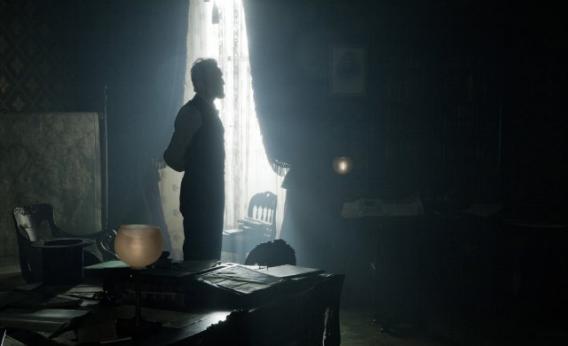In a particularly poignant moment in Lincoln, honest Abe spends a few moments with a handsome telegraph operator, played by a somewhat period-discordant Adam Driver. “Do we choose to be born? Are we fitted to the times we’re born into?” the Great Emancipator wonders aloud, gazing tenderly at the young man.
When considering the controversial matter of whether Abraham Lincoln was “gay,” that second question is the right one to ask. Some revisionist historians, over the past decade or so, have indeed argued that Lincoln was not fitted to his time, for while he married or was otherwise involved with at least three women over the course of his life (and had four children with Mary Todd), certain bits of evidence suggest that his true romantic desires were directed toward men. Other historians, of course, reject this claim as an activist imposition at worst, a wishful over-reading of a few vaguely suggestive nuggets at best. The truth? It all depends on how you read the clues—which is to say, we probably will never know it.
What’s clear is that the historical Lincoln maintained intimate friendships with men—especially Joshua Speed, with whom a young Lincoln shared a bed for four years following his move in 1837 to Springfield, Ill., and a lifelong correspondence thereafter. But was this relationship romantic and/or sexual, or something more commonplace in an age that was blessed with a more diverse range of male relationships than our modern, hypersensitive, “no homo” era? Based on the available evidence, most historians say we simply can’t be sure. Men in Lincoln’s time often shared beds for economic reasons, just as they share apartments now, and homosocial expressions of affection were completely acceptable, even encouraged.
Still, reading the president’s letters and diaries, one—a gay one like me, anyway—can’t help but note, well, overtones. And despite what provocateur-with-a-book-to-sell Larry Kramer would have you believe—he was partly responsible for sparking the scholarly interest in Lincoln’s boudoir, thanks to a 1999 lecture in which he claimed the American hero as a kind of gay forefather—textual overtones are all we have to go on. For example, there is clear documentation that Lincoln and Speed were both terribly nervous about marrying women, leading them to act as confidants and cheerleaders to one another during times of wooing, essentially encouraging one another to get it over with already. Certainly no smoking gun, but not quite nothing, either. And what of Lincoln’s deep depression after Speed sold the store they lived above and moved away? To my ear, even Lincoln’s dismissal of Mary Owens—“I knew she was oversize, but now she appeared a fair match for Falstaff”—has a catty, queeny, and even gynaphobic ring.
Of course, reading modern concepts like “queeny” and even “gay” into the past is dangerous. If you’ve read your Foucault, you know that homosexuality—which is to say, a total identity predicated on same-sex attraction as opposed to discrete sex acts—was only invented as a possibility with the rise of psychoanalysis and the medical and legal establishments’ increasing interest in “perversion” in the late 19th century. For Lincoln and his milieu, being a homosexual was simply not possible. The term and all its connotations did not yet exist. And forget “gay”—that identity-cum-subculture only becomes thinkable later in the 20th century. So in a strictly academic sense, we can say with certainty that Lincoln was not gay.
But was he, you know, “gay”? While historians will probably never determine for sure if Lincoln consummated his relationships with Speed or other men close to him, the new film provides a perfectly reasonable space for imagining what a “gay” Lincoln might look like. Tony Kushner, in his screenplay for Lincoln, has offered a subtle and pleasingly nuanced take.
The most charged moment of the movie comes when Lincoln awakens his secretary, John Hay, in the middle of the night to discuss presidential pardons. Lincoln sits on the edge of Hay’s bed, discusses his decisions, and then pats the young man on the leg before heading back to his chambers. As the president leaves, Hay hesitantly asks if he might like some company. Lincoln declines at that moment, but continues to lock eyes with Hay—his self-proclaimed “third ear”—throughout the film. I think we are meant to assume that the offer of “company” has been taken up on other occasions, but that’s just me. As with much of the melancholy, quiet, awkward, and selfless president’s biography, his “true” intimate feelings are likely to remain the property of the ages.
Further Reading:
“The True Lincoln,” Joshua Shenk, Time
“Was Lincoln Gay?” Carol Lloyd, Salon
“Was Lincoln Gay?” Richard Brookhiser, New York Times
“Love Stories: Sex Between Men Before Homosexuality,” Ed Folsom, Walt Whitman Quarterly Review
“My Old Kentucky Homo: Abraham Lincoln, Larry Kramer, and the Politics of Queer Memory,” Charles E Morris III, in Queering Public Address: Sexualities in American Historical Discourse
